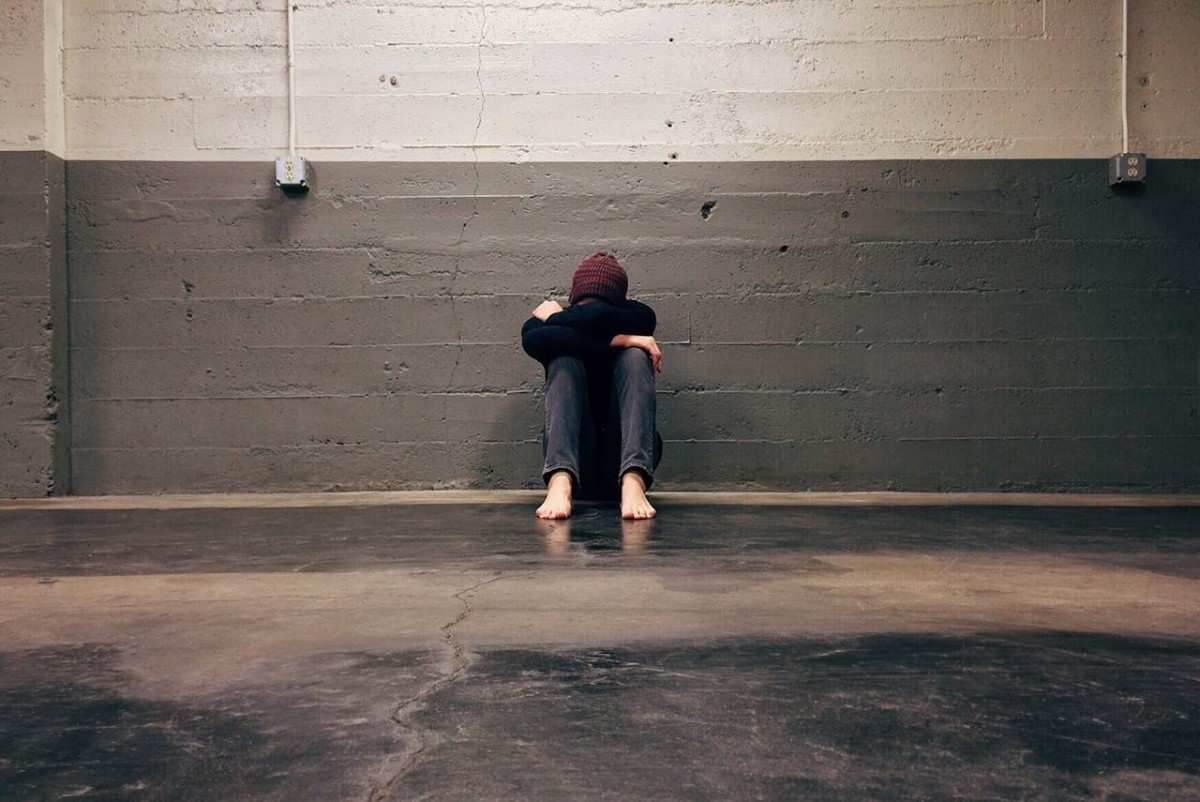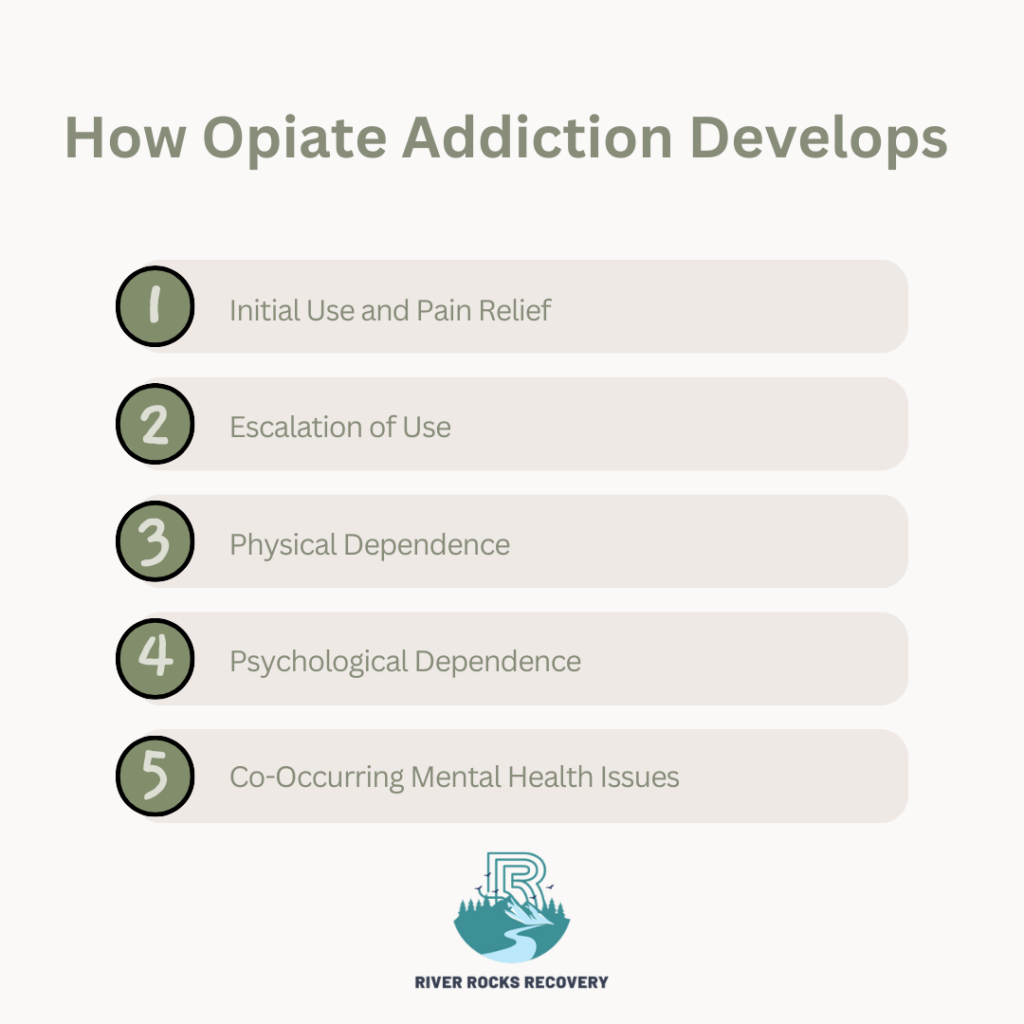We understand how difficult and heartbreaking it is for you to know that your loved one is struggling with opiate addiction. Addressing this situation becomes critical. In any case, how can you assist your family or loved ones who are struggling with opiate addiction? While the other person is in no mood to listen anymore.
Many times, the drug-addicted person is uncontrollable and can harm themselves and others as well. So you need to deal with this critical condition patiently. Addiction alters brain chemistry, and the addicted person does not derive pleasure from ordinary activities. His mind became uncontrollable, requiring additional opiates to return to normalcy.
So, if you see your loved one is not going to listen to you anymore; and it’s time to take a sensuous action. Read this blog! Here we will be discussing signs of addiction and how you can support them during their difficult times.
Signs of Opiate Addiction: Must Know!
Before ensuring that your partner is addicted, check out the given signs. If they show up, your partner is addicted.
- Avoiding family and friends.
- Spending time with lonely or unknown people.
- Not maintaining proper hygiene.
- Not taking an interest in their favorite activities and hobbies.
- Changes in sleeping and eating habits.
- Sudden mood changes.
- Changes in his appearance, such as watery eyes, weight loss, excessive sweating, etc.
Observing these signs will help you realize that your loved one has a drug addiction. Now the thing is what can you do for them to overcome this situation? Let’s learn how anyone can support a struggling loved one with an opiate addiction.
Understanding Opiate Addiction
First, you need to calm yourself and understand opiate addiction. It is a disease that your loved one is dealing with. Simply educate yourself about opiate addiction and learn how your loved ones feel. Understanding the circumstances of struggling people makes it simple to assist them. A close look at their behavior and get familiar with their condition. You should seek advice on this addiction from professionals such as doctors and psychologists.
Here’s a guide to help you support your loved one while also taking care of yourself throughout the process.
1. Recognize the Signs of Opiate Addiction
The first step in supporting someone with opiate addiction is understanding what addiction looks like. Addiction symptoms can include:
- Changes in behavior (e.g., secrecy, withdrawing from social activities)
- Physical symptoms like fatigue, drowsiness, or weight loss
- Flu-like symptoms, which are often withdrawal signs
- Financial or legal troubles caused by drug use
Recognizing these signs early can help you encourage your loved one to seek help before their addiction worsens. Understanding that addiction is a disease—not a moral failure—can help you approach the situation with compassion.
2. Offer Compassionate Support
Approaching a loved one about their addiction is delicate. It’s essential to do so with compassion rather than judgment. Start by expressing your concern for their well-being, and be specific about the behaviors or changes you’ve noticed. Avoid blaming or using accusatory language, as this can make your loved one defensive.
Instead, say something like, “I’ve noticed that you’ve been struggling lately, and I’m really concerned. I want to help you in any way I can.” Let them know you are there to support them, whether that means listening, researching treatment options, or offering to accompany them to doctor’s appointments.
3. Educate Yourself About Opiate Addiction
Before you can effectively support your loved one, it’s crucial to educate yourself about the complexities of opiate addiction. Opiates, such as prescription painkillers and heroin, are highly addictive because of the way they affect the brain’s reward system. Over time, an individual’s brain becomes dependent on the drug, leading to compulsive use despite negative consequences.
It’s also important to understand that quitting opiates “cold turkey” can be dangerous due to the severity of withdrawal symptoms. Symptoms like intense cravings, sweating, nausea, and anxiety make it difficult for someone to quit without medical assistance.
Knowing more about the addiction process and withdrawal challenges will help you empathize with what your loved one is going through and understand the importance of professional addiction treatment programs.
4. Encourage Professional Treatment
While emotional support from family and friends is crucial, professional help is often necessary for long-term recovery. Opiate addiction is particularly difficult to overcome alone due to the severe physical and psychological dependence that develops.
Treatment options at River Rocks Recovery include:
- Partial Hospitalization Programs (PHP): These programs provide intensive care during the day, allowing individuals to return home at night. PHP offers a higher level of support than outpatient care, making it suitable for individuals who need structured treatment.
- Intensive Outpatient Programs (IOP): For those who need flexibility, IOP allows individuals to attend therapy and treatment sessions while maintaining their daily responsibilities. This program provides comprehensive care but doesn’t require a full-time stay at the facility.
- Outpatient Programs (OP): Outpatient care is a less intensive option, offering therapy and support without requiring individuals to stay in a facility. OP is best suited for those who have already completed more intensive levels of care or have a lower risk of relapse.
- Opiate Rehab Treatment: A specialized program designed to treat opiate addiction. Treatment usually includes medication-assisted treatment (MAT), behavioral therapy, and comprehensive support to help individuals navigate recovery.
If your loved one is ready to seek help, you can offer to assist with finding treatment options, making phone calls, or even attending consultations with them.
5. Avoid Enabling Behavior
One of the most challenging aspects of supporting a loved one with addiction is learning to set boundaries. It’s easy to fall into the trap of enabling—unintentionally supporting your loved one’s addiction by excusing their behavior, giving them money, or covering for them in difficult situations.
Enabling doesn’t help your loved one in the long run. Instead, focus on encouraging responsibility and accountability. Offer help that supports their recovery, such as helping them research rehab centers, rather than offering financial support or making excuses for them.
6. Get Involved in Family Therapy
Addiction is often referred to as a “family disease” because it affects not only the person struggling but also their loved ones. Family therapy can help everyone involved better understand addiction, work through communication issues, and learn how to set healthy boundaries.
Many treatment centers, like River Rocks Recovery, offer family therapy as part of their Addiction Treatment Programs. Family therapy is designed to help families heal together, improve communication, and support their loved one’s recovery journey.
7. Support Your Own Mental Health
Caring for someone with addiction can be emotionally draining. While supporting your loved one, it’s essential to prioritize your own well-being. Seek support through therapy, support groups, or counseling to process your emotions and avoid burnout. There are numerous groups designed specifically for families of those struggling with addiction, like Al-Anon and Nar-Anon, where you can connect with others who understand your situation.
8. Celebrate Their Progress
Recovery from opiate addiction treatment is a long journey, often marked by ups and downs. Celebrate the small victories along the way, whether it’s completing a week of treatment, attending therapy sessions, or staying clean for a few days. Acknowledging progress can provide your loved one with the encouragement they need to stay committed to recovery.
Start Treatment under Expert Guidance
Bring them to the experts like River Rocks Recovery to help them overcome this situation. It is a disease that can be solved with proper treatment. Also, be aware of the best professionals in your locality to deal with this situation since they know better. They will help you with beginning proper addiction treatment with the specialists without difficulty.
So, what are you waiting for? find your Expert now!
Finding an Expert for the Addiction Treatment? Call River Rocks Recovery
River Rocks Recovery is the best partner to enroll your loved one in addiction treatment programs. We provide specialized care and can connect people with professionals who specialize in different elements of addiction rehabilitation. Call River Rocks Recovery at (888) 905-6281 today to learn more about treatment options and how to support your loved one through the recovery process.
FAQs on Struggling with Opiate Addiction
What is a Partial Hospitalization Program (PHP)?
A Partial Hospitalization Program provides intensive treatment during the day while allowing the individual to return home at night. It is ideal for those who need structured care but don’t require full-time inpatient treatment.
What is the difference between an Intensive Outpatient Program (IOP) and an Outpatient Program (OP)?
An IOP offers more structured treatment several days a week, often for several hours a day, whereas an OP is less intensive, providing fewer hours of therapy while still offering essential support.
Why is professional treatment necessary for opiate addiction?
Opiate addiction can lead to severe withdrawal symptoms and health complications. Professional opiate addiction treatment ensures a medically supervised detox and a comprehensive recovery plan that addresses both physical and psychological aspects of addiction.
How can family therapy help in addiction recovery?
Family therapy addresses the family dynamics that may contribute to addiction and helps to foster a supportive environment for recovery by improving communication and setting healthy boundaries.





























